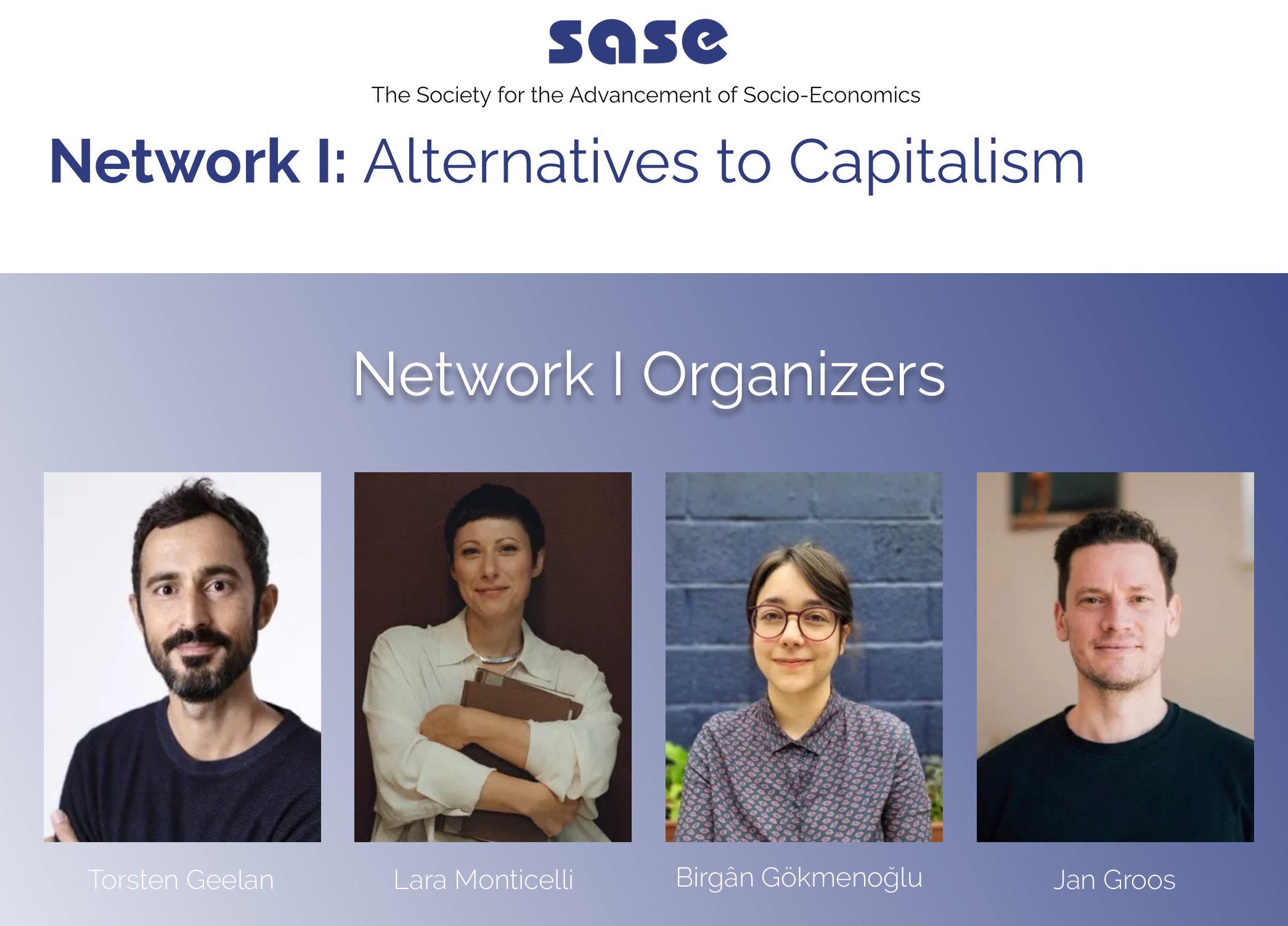The Alternatives to Capitalism Network of the Society for the Advancement of Socio-Economics has released a call for papers for the 2026 SASE conference that will be held in Bordeaux, France. They will be accepting 500-word long abstracts (plus references) and the deadline to submit will be December 16 2025. Further information about the call for papers can be found below:
Call for papers
The present moment is characterised by a polycrisis: rapidly widening inequalities of income and power, the erosion of democracy and civil rights, escalating wars and geopolitical tensions, accelerating human-induced climate change and ecological destruction. In this context, a transition to a more equitable, democratic, solidaristic and sustainable socio-economic system is not just a hopeful collective imaginary to rally around – it is an urgent necessity. Over the past decade, this growing awareness has fuelled a vibrant debate, within and beyond academia, about the future of capitalism and the search for transformative alternatives that can fundamentally reshape our economies and societies.
Established in 2017, this research network aims to advance the international, comparative and interdisciplinary study of capitalism and its alternatives, and thereby contribute to debates on the future of capitalism, alternative forms of organization, the commons, democratic planning, prefigurative politics, democratization and socialization of investments, grassroots social movements, real utopias, radical politics, just transitions, heterodox economic thinking and structural alternatives.
Past annual gatherings in Berkeley (2016), Lyon (2017), Kyoto (2018), New York (2019), online during the pandemic (2020, 2021), Amsterdam (2023), Limerick (2024) and Tiohtià:ke/Montreal (2025) featured special events with leading thinkers such as Nancy Fraser, author-meets-critics sessions, thematic roundtables, documentary screenings and visits to local organisations and initiatives. Taken together, these activities have fostered a vibrant international community and given rise to a thriving book series Alternatives to Capitalism in the 21st Century, published by Bristol University Press.
To date the network’s JISC mailing list, which we encourage you to sign up to, has over 700 members from around the world.
The main area of inquiry of the network is to explore how long-standing and emerging social actors are challenging and seeking to supplant conventional capitalistic modes of production, consumption, and reproduction by engaging in collective action of various sorts. We are especially interested in research that helps us to understand:
Who are the emancipatory subjects promoting alternatives to capitalism?
What emancipatory strategies are they enacting, and to what extent are these viable, achievable, and scalable?
What alternative modes of collective coordination and organization are capable of challenging capitalism?
How are anti-capitalist struggles enmeshed with other struggles for social justice?
And how do the State and the market co-opt, repress, or facilitate such alternatives within the socio-economic, political and geographic contexts in which they are embedded?
In sum, the network fosters interdisciplinary dialogue between scholars from a variety of disciplines and fields of study – including sociology, social and political theory, social movement studies, political economy, anthropology, industrial relations, cultural studies, economic history and human geography – who are conducting theoretical and empirical research on topics such as, but not limited to:
- Contemporary capitalism, its crises, and possible alternatives
- Social change, transitions to post-capitalist societies and low-carbon economies
Resilience and resistance to capitalist expropriation and exploitation- Radical and deep ecology, eco-feminism and eco-socialism
- Democratic planning as a broader horizon and as a set of transitional projects
- Worker, producer, and consumer cooperatives, workers’ councils, economic democracy and labour struggles
- Direct/participatory/deliberative democracy and the commons
- Democratic socialism and socialism in the 21st century
- Social solidarity economy
- Wellbeing economy and foundational economy
- Radical municipalism, community wealth building and doughnut economics
- Community and diverse economies
- Degrowth and post-growth alternatives
- Decolonial and feminist economic and social practices
- Transformative social innovation
- Anti-capitalist trade unions, political parties and social movements
- The socialization of housing, land, investment and infrastructures more broadly
- Political and ethical consumerism
- Critiques of “green capitalism” and “conscious capitalism”
- Ecovillages, communes and intentional communities
- Alternatives to shareholder capitalism
- Alternative metrics and values in capitalist societies (e.g., ESG impact, new taxonomies and benchmarks)
- Alternative and complementary currencies
- Alternatives in/to creative industries
- Alternative and place-based food and energy networks
- Critical, dialogical and emancipatory pedagogy for a just ecological transition
- Innovative methods and epistemologies for studying and interpreting alternatives to capitalism
- Alternative governmentality
- Utopian imaginaries of alternatives to capitalism and critical dystopian explorations of capitalism in the media and popular culture
You can read more about the call for papers here.
